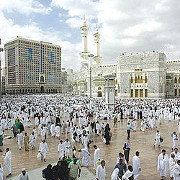BANSWARA, India — Stung by the realization that it faced a child malnutrition crisis worse than in most African countries, India is finally waking to the scale of the problem.
Progress is slow and political will patchy, but there are signs that a new approach to fighting malnutrition is beginning to reap dividends.
 Efforts to improve rural health and education have combined with an expansion of a child welfare program that employs nearly 2 million village health workers to focus on maternal and infant health and nutrition. A rural jobs plan has helped raise wages in the countryside, and new programs are educating adolescent girls, nearly half of whom will marry before age 18, about feeding and hygiene.
Efforts to improve rural health and education have combined with an expansion of a child welfare program that employs nearly 2 million village health workers to focus on maternal and infant health and nutrition. A rural jobs plan has helped raise wages in the countryside, and new programs are educating adolescent girls, nearly half of whom will marry before age 18, about feeding and hygiene.
 Efforts to improve rural health and education have combined with an expansion of a child welfare program that employs nearly 2 million village health workers to focus on maternal and infant health and nutrition. A rural jobs plan has helped raise wages in the countryside, and new programs are educating adolescent girls, nearly half of whom will marry before age 18, about feeding and hygiene.
Efforts to improve rural health and education have combined with an expansion of a child welfare program that employs nearly 2 million village health workers to focus on maternal and infant health and nutrition. A rural jobs plan has helped raise wages in the countryside, and new programs are educating adolescent girls, nearly half of whom will marry before age 18, about feeding and hygiene.
Signs of progress appeared in an independent survey of malnutrition in 100 of India’s least-
developed districts. Released in January, it showed the proportion of underweight children falling to 42 percent, a drop of 11 percentage points.
developed districts. Released in January, it showed the proportion of underweight children falling to 42 percent, a drop of 11 percentage points.
Even more dramatic are preliminary data from the western state of Maharashtrareleased last month, which show a decline in the number of children who were stunted, to 22.8 percent from 39 percent in 2006, thanks to a government program aimed at the needs of infants and mothers.
“We are confident that there is a good story in the making,” said Victor Aguayo, head of UNICEF’s India nutrition program. “There is excitement that what can happen is happening.”
Maharashtra is home to India’s financial capital, Mumbai, and is the country’s economic powerhouse. But malnutrition rates did not begin falling significantly until the state government started showing the political will to tackle the problem head-on.
Nationally, the wake-up call came in 2007 with the realization that a decade and a half of buoyant economic growth had scarcely dented child malnutrition rates, which remained higher than the average in sub-Saharan Africa. Nearly half of Indian children younger than 5 were stunted and underweight for their age, a government survey released that year showed, permanently impairing their mental and physical development.
But in a country where many middle-class people find the subject of malnutrition rather boring, it took the idea that India was underperforming — not just compared with Africa but also with neighbors such as Bangladesh — to embarrass the government into action. In 2007, Prime Minister Manmohan Singh called it a “national shame,” and a failed strategy began to be reevaluated.
“India as a nation had been overemphasizing economic growth in the hope it would somehow solve the problem,” Aguayo said. But growth has not been equitably distributed, and experts argue that the health sector has been neglected.
Malnutrition, Aguayo said, has been undermining India’s ambitions to be the nation “it wants to become.”
Grueling reality
Despite the progress, India has a long way to go. In a poor tribal district of Banswara, in the western state of Rajasthan, the mismatch between India’s aspirations and its problems, between its self-image and the grueling reality in the lives of millions of its citizens, is striking.
source: http://www.washingtonpost.com



